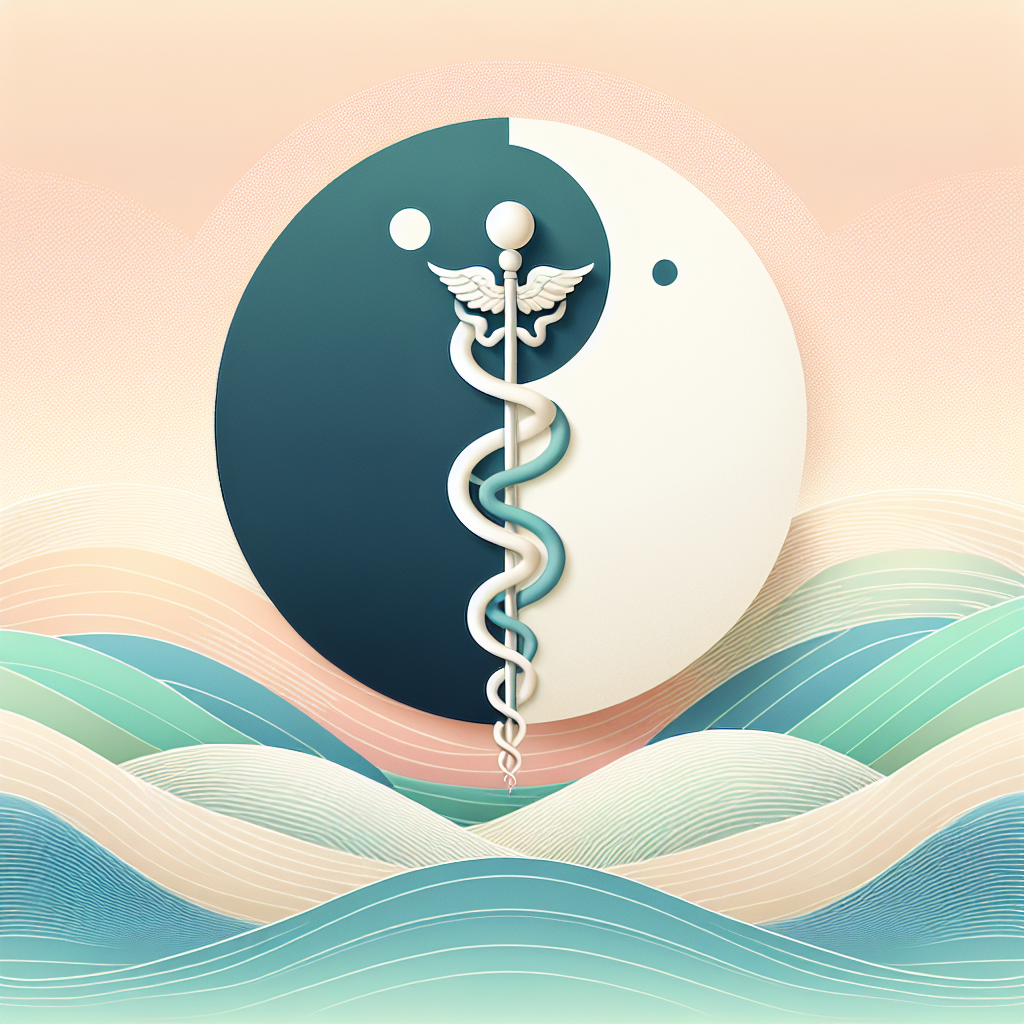Harmonizing Hormones: A Comprehensive Guide to Managing PMS with Western Medicine and Eastern Healing Traditions
Premenstrual Syndrome (PMS) is a common condition that affects millions of women worldwide. Characterized by a range of physical and emotional symptoms that occur in the luteal phase of the menstrual cycle, PMS can significantly impact daily life and well-being. Fortunately, various treatment approaches from both Western medicine and Eastern healing traditions offer hope and relief. This article explores the nature of PMS and compares and contrasts the respective treatment strategies of these two healing paradigms.
Understanding PMS
PMS encompasses a variety of symptoms including mood swings, irritability, depression, anxiety, bloating, breast tenderness, headaches, and fatigue. The severity of these symptoms can range from mild to debilitating, and their exact cause remains uncertain. Most experts agree that hormonal fluctuations, particularly involving estrogen and progesterone, play a critical role in the onset of PMS. Stress, lifestyle, and genetic factors also contribute to symptom severity.
Western Medicine Approaches to PMS
Western medicine often focuses on symptom management and hormonal regulation to treat PMS. Here are some of the most common strategies:
1. Pharmacological Treatments:
– Nonsteroidal Anti-Inflammatory Drugs (NSAIDs): Medications like ibuprofen and naproxen can alleviate pain and inflammation associated with PMS.
– Antidepressants: Selective serotonin reuptake inhibitors (SSRIs) such as fluoxetine and sertraline have been shown to effectively reduce emotional symptoms like depression and anxiety.
– Hormonal Contraceptives: Birth control pills, patches, and hormonal intrauterine devices (IUDs) help stabilize hormone levels, thereby reducing the severity of PMS symptoms.
– Diuretics: To manage bloating and water retention, diuretics like spironolactone may be prescribed.
– GnRH Agonists: In severe cases, gonadotropin-releasing hormone (GnRH) agonists can be used to suppress ovulation and reduce symptoms.
2. Lifestyle Modifications:
– Diet: A balanced diet rich in complex carbohydrates, fiber, and lean proteins while low in salt, caffeine, and sugar can help manage symptoms.
– Exercise: Regular physical activity has been shown to reduce PMS symptoms by enhancing mood and decreasing bloating.
– Sleep: Adequate and quality sleep is essential for hormonal balance and overall well-being.
3. Psychotherapy:
– Cognitive Behavioral Therapy (CBT): CBT helps women develop coping strategies and manage the emotional aspects of PMS.
Eastern Healing Traditions Approaches to PMS
Eastern healing traditions, particularly Traditional Chinese Medicine (TCM) and Ayurveda, offer holistic approaches to PMS management. These methods emphasize balance and harmony within the body and mind.
1. Traditional Chinese Medicine (TCM):
– Herbal Medicine: TCM practitioners use customized herbal formulas to address the root causes of PMS. Common herbs include Dong Quai (Angelica sinensis), which is believed to regulate menstruation, and Chaste Tree Berry (Vitex agnus-castus), known for its hormone-balancing properties.
– Acupuncture: By stimulating specific points on the body, acupuncture aims to balance the flow of Qi (vital energy) and relieve symptoms such as pain, bloating, and mood disturbances.
– Dietary Therapy: TCM dietary recommendations focus on nourishing the blood and supporting the liver. Foods rich in essential nutrients, such as leafy greens, beans, and seeds, are encouraged.
2. Ayurveda:
– Herbal Remedies: Ayurvedic practitioners use herbs like Ashwagandha (Withania somnifera) for stress relief and Shatavari (Asparagus racemosus) for hormone balance.
– Diet and Nutrition: Ayurveda emphasizes a diet tailored to an individual’s dosha (constitutional type). For example, Vata types may benefit from warm, grounding foods, while Pitta types might need cooling, hydrating foods.
– Yoga and Meditation: Specific yoga poses and meditation techniques are recommended to promote relaxation and hormonal balance. Practices such as Pranayama (breathing exercises) are particularly effective in calming the mind and body.
– Panchakarma: A detoxification procedure that includes massages, herbal treatments, and dietary adjustments to cleanse the body and restore balance.
Comparison and Contrast
Both Western and Eastern approaches to PMS management offer valuable insights and effective treatments. However, they differ significantly in their philosophies and methodologies.
1. Philosophy:
– Western Medicine: Primarily symptom-focused, Western medicine aims to alleviate specific symptoms through pharmacological interventions and lifestyle changes. It relies heavily on clinical trials and evidence-based practices.
– Eastern Healing Traditions: These approaches prioritize holistic well-being and seek to address the root causes of imbalance. They emphasize the interconnectedness of mind, body, and spirit.
2. Treatment Focus:
– Western Medicine: Treatments are typically more immediate and targeted. For example, NSAIDs provide quick pain relief, and SSRIs can rapidly improve mood.
– Eastern Healing Traditions: Treatments are often more gradual and aim for long-term balance. Herbal remedies and dietary changes may take weeks or months to show significant effects.
3. Individualization:
– Western Medicine: While treatments can be personalized, they are often standardized based on clinical guidelines.
– Eastern Healing Traditions: Treatments are highly individualized, considering unique constitutions, imbalances, and lifestyle factors.
4. Side Effects:
– Western Medicine: Pharmacological treatments can have side effects, such as gastrointestinal issues with NSAIDs or weight gain with hormonal contraceptives.
– Eastern Healing Traditions: Generally considered safer with fewer side effects, though herbal remedies can interact with medications and require professional guidance.
Integrative Approaches
Recognizing the strengths and limitations of both Western and Eastern practices, many healthcare providers advocate for an integrative approach to PMS management. Combining conventional treatments with complementary therapies can offer a more comprehensive and balanced strategy. For example, a woman might take an SSRI for mood regulation while also practicing yoga and using herbal remedies to support overall well-being.
Conclusion
PMS is a multifaceted condition that requires a nuanced and individualized approach to treatment. Both Western medicine and Eastern healing traditions provide valuable tools and insights for managing symptoms and promoting hormonal balance. By understanding and integrating these diverse strategies, women can achieve greater harmony and well-being in their menstrual health. Ultimately, the best approach is one that resonates with the individual’s beliefs, needs, and lifestyle, fostering a holistic path to healing and wellness.

